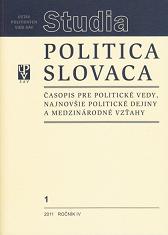Libanonská občianska vojna, 1975 – 1976
The Lebanese civil war (1975-1976)
Author(s): Karol SorbySubject(s): Politics / Political Sciences
Published by: SAV - Slovenská akadémia vied - Ústav politických vied Slovenskej akadémie vied
Keywords: the Lebanese civil war of 1975-76; the Cairo Agreement of 1969; the sectarian system in Lebanon; the Lebanese National Movement; the Palestinian Resistance; the Lebanese forces; Syria’s special relationship
Summary/Abstract: In the years following the June 1967 War, the Palestinian-Israeli conflict intruded on Lebanese political life. This development, in combination with demographic and political changes taking place inside Lebanon itself, upset the country’s fragile sectarian balance and plunged it into fifteen years of vicious and destructive civil war. The civil war was not an exclusively Lebanese affair; it was precipitated by the Palestinian presence in the country and soon attracted external intervention by Syria and Israel, thus bringing to an end the attempts of Lebanon’s political leaders to insulate their country from the wider regional conflict. Support for the Palestinians came primarily from Muslims alienated by the existing system, which benefited the political leaders and their associates but failed to provide basic social services to broad sections of the population. The social and economic grievances of Muslims were compounded by the sectarian arrangements that continued to favour the country’s Christians. Long before the crisis of the 1970s, Lebanon’s political leaders recognized that Muslims outnumbered Christians and that the largest single religious grouping in the country was the Sh’ia Muslim community.
Journal: Studia Politica Slovaca
- Issue Year: IV/2011
- Issue No: 1
- Page Range: 54-66
- Page Count: 13
- Language: Slovak

